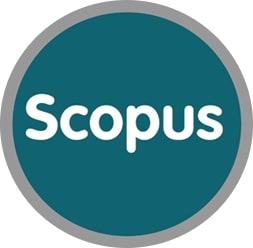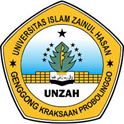Contemporary Reflections on Abuse of Authority in the Coastal Wall Project within the Framework of Sharia Economic Law
DOI:
https://doi.org/10.5281/zenodo.17349677Keywords:
Abuse of Authority, Sharia Economic Law, Coastal Wall, Public Trust, Maqāṣid al-Sharī‘ahAbstract
This study aims to analyse the case of abuse of authority in the coastal wall construction project in Tangerang, Banten, from the perspective of Sharia Economic Law. The case drew attention due to maladministration, document forgery, and the illegal issuance of land ownership and building use rights certificates, resulting in the loss of fishermen's access to their traditional fishing grounds and causing economic losses of up to IDR 24 billion. This study addresses two main questions: (1) What forms of authority abuse occurred in the project? Moreover, (2) How do the principles of Sharia Economic Law, such as trust (amanah), justice ('adil), and public benefit (maslahah), assess such actions? The research employs a qualitative approach, utilising a normative-juridical method and a comparative sharia perspective, which involves content analysis of legal documents, investigative reports from state institutions, and literature in fiqh muamalah. The findings show that the abuse of authority not only violates Indonesian positive law but also contradicts key principles of Sharia Economic Law. The absence of the sharia-based tenets in public governance contributes to social inequality, loss of public trust, and ethical decay in resource management. The study concludes that integrating the national legal system with the values of Sharia Economic Law is essential to prevent power abuse and enhance the accountability of public officials.This research presents an alternative framework based on maqāṣid al-sharī‘ah for the ethical evaluation of public policies, serving as an early reference for applying Sharia Economic Law in cases of authority abuse in infrastructure development.
Downloads
References
AA Zafi and LN Roja'. “Analysis of Integrating Islamic Law and National Law Regarding Corruption in Indonesia.” DIKTUM: Journal of Sharia and Law 18, no. 2 (2022): 145–60.
Bagaskoro, MR and Khumaeroh, IN “Determination of Corruption Crimes of Abuse of Authority by Public Officials.” Collegium Studiosum Journal 7, no. 1 (2024): 299–306.
Bakhtiar, N., & Sari, NR, and Suwandi, M. “Transparency and Accountability of Public Budget Realization Based on Islamic Principles in Preventing Corruption Practices.” Income Journal 2, no. 1 (2023): 45–59.
Charlaes Bego, Karolus, Edy Sony, M. Aslam Fadli, Arief Fahmi Lubis, and Irman Putra. “A Legal Review of Abuse of Authority by Public Officials from a State Administrative Law Perspective.” Collaborative Journal of Science 7, no. 10 (2024).
Is, Muhammad Fadhlan, ‘Busthanul Arifin ’ s Thoughts and Role in the Law on Religious Courts and the Compilation of Islamic Law in Indonesia’, Jurnal Hukum Keluarga, 01.02 (2025), 28–38 <https://journal-rabiza.com/index.php/JHK/article/view/15/9>
Ilham Prayoga, Taufik, Nurlaila Isima, and Suryadi Ibrahim. “The Potential of the Sharia Economic Legal System in Preventing Corruption and Realizing the Integrity of the Economic Sector.” Al-'Aqdu: Journal of Islamic Economics Law 3, no. 2 (2023).
MR Bagaskoro and I. N. Khumaeroh . “Determination of Corruption Crimes of Abuse of Authority by Public Officials.” Collegium Studiosum Journal 7, no. 1 (2024).
Marcellus Hakeng Jayawibawa. “Marine Fencing in Tangerang: A Threat to Ecology and Coastal Residents.” Kompas.com , January 14, 2025. https://nasional.kompas.com/read/2025/01/14/06030321/pemagaran-laut-di-tangerang-ancaman-bagi-ekologi-dan-warga-pesisir?page=all. Editor: Sandro Gatra Kompascom+.
Mufti, Fahrizal, and Muhlisah Lubis. “The Relevance of the Jinayah Concept to the Prevention of Corruption and Abuse of Authority in Human Resources Management.” Bureaucracy Journal: Indonesia Journal of Law and Social-Political Governance 5, no. 1 (2025).
Narbuko, Cholid, and Abu Achmadi. Research Methodology . Jakarta: Bumi Aksara, 2014.
Nata, Abuddin. Methodology of Islamic Studies . Jakarta: Raja Grafindo Persada, 2013.
Prasetia, Yoga, and Muhamad Hasan Sebyar, ‘Legal Aspects of the Rights of Children from Siri Marriages’, JHK: Jurnal Hukum Keluarga, 01.01 (2024), 9–17
Purna Jati, Rhama. “Ombudsman Finds Maladministration and Indications of Criminal Conduct in Sea Fence Construction.” Kompas.id , February 3, 2025. https://www.kompas.id/artikel/ombudsman-temukan-maladministrasi-dan-indikasi-pidana-dalam-pembangunan-pagar-laut.
Rizky, RO, Faziani, M., Saputra, RA, and Mashudi. “Corruption Prevention in Islamic Economics against the Pension Fund Oligarchy of PT. Asabri (Persero).” Journal of Governance and Politics 5, no. 3 (2022): 201–20.
S. Praja, Juhaya. Philosophy of Islamic Law . Jakarta: Kencana Prenada Media, 2011.
Siregar, NA, Hardi, EA, and Putriana, M. “The Effect of Accountability and Transparency of Financial Reporting on Muzakki’s Trust” 4, no. 1 (2023): 1–25.
Sumarlin, K., Sormin, B., and Syahyunan. “The Effect of Accountability and Transparency of Financial Reporting on Muzakki’s Trust.” Al-Kharaj: Journal of Islamic Economics, Finance & Business 6, no. 5 (2024): 3962–73
Downloads
Published
How to Cite
Issue
Section
License
Copyright (c) 2025 Juliandre Lombo et al

This work is licensed under a Creative Commons Attribution-ShareAlike 4.0 International License.















